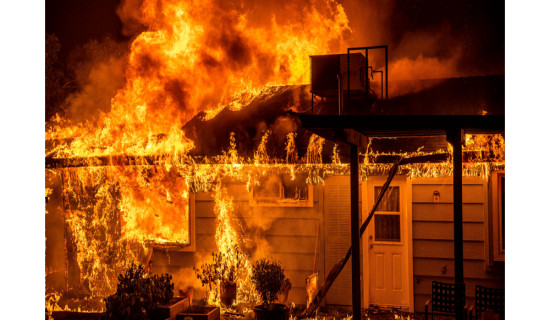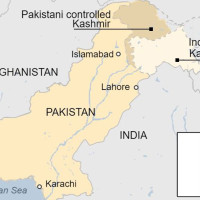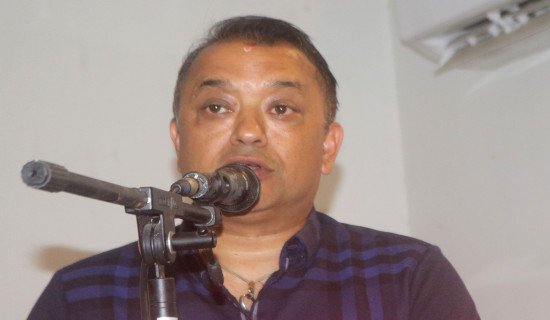- Saturday, 22 February 2025
Trump Revisits Ukraine Strategy
The American foreign policy had a stunning turnaround when US Secretary of State Marco Rubio and Russian Foreign Minister Sergey Lavrov met in Riyadh on 18 February to discuss the possibility of ending the three-year-long Ukraine war and improving US-Russia relations. However, the strong reactions and concerns raised by the European countries regarding the unilateral decision of President Trump to seek rapprochement with Russia, indicate that the path to peace is far from easy. The Trump Administration's efforts have been met with opposition to and even threats of noncompliance if any deal was made without the participation of Ukraine and its European allies.
The divergence of view between the US and its NATO allies became evident at the Munich Security Conference held almost concurrently on the issue of the Russia-Ukraine war and the possible way to its resolution. Speaking at the conference, US Secretary of Defense Pete Hegseth said that it was unrealistic for Ukraine to talk about joining NATO and reclaiming control over territories it had under its control before 2014 as a precondition for a peace settlement. His remarks underscored the growing rift in the position of the United States and that of NATO countries, which continue to root for Ukraine's full territorial integrity as the basis of any durable peace deal.
Cessation of hostilities
The way the US top diplomats presented their views demanding the immediate cessation of hostilities without addressing concerns of Ukraine and NATO suggests that the new US administration does not care to align its position with NATO allies on the nature of the Russia- Ukraine war. If NATO views the Russian aggression on Ukraine as part of a broader geopolitical strategy for reviving the Russian Empire rather than an isolated event of conflict. The NATO leaders insist that the Russian invasion represents an existential threat to the democratic values that Europe represents.
In sharp contrast to the policy pursued by the previous Biden Administration, the US stance on the Ukraine war appears fundamentally different under the Trump Administration. This shift was evident in the remarks of US Vice President JD Vance at the Munich Conference. Vance Rejected the European perspective of looking at Russia as the bad boy of Europe, stating, "The threat I worry about the most vis-à-vis Europe is not Russia, China or any other external actors. What I worry about is the threat from within. The retreat of Europe from some of the most fundamental values, values shared with the United States".
Earlier Volodomir Zelensky had told Vice President Vance that he would not agree to any deal from which Ukraine and Europe were excluded. But US President Donald Trump remained unfazed and sent his Secretary of State Marco Rubio to Riyadh to negotiate a deal with Russian Foreign Minister Sergey Lavrov. According to news reports, the Russian and the US leaders had a candid and serious discussion on setting up high-level diplomatic channels to prepare the framework for ending the war.
President Trump's determined plan to handle the Ukraine crisis singlehandedly has sent shockwaves across Europe. The NATO countries have expressed strong opposition to an arbitrary decision of the Trump Administration to take Russia into confidence sidelining NATO and Ukraine – a move they consider a betrayal. In response to this new development, French President Mannual Macron even convened an emergency meeting in Paris with leaders from eight European countries, as well as the heads of NATO and EU bodies to discuss and decide the course of action to be taken to deal with the situation created by the shifting stance of the United States.
The flurry of activities that have taken place this week on the international geopolitical stage reveals an irreversible rift in NATO as a defense pact in which the US has played a leading role ever since it joined this organisation in 1949. The open crack in the relationship between the US and NATO is a significant contemporary development. But it is merely a culmination of a long-simmering crisis. During his previous term of office, Trump had expressed his dissatisfaction with NATO countries for their reluctance to increase their defense spending. The decision of the US administration to push for peace negotiation directly with Russian leadership- sidelining Ukraine and Europe - therefore, aligns with his vision for an equitable transatlantic alliance.
The present peace initiative of Trump is the first serious attempt to address the Russia-Ukraine dispute after the failure of the Minsk and Istanbul negotiations. Scholar John Mearsheimer argues that the previous talks did not succeed because of leaders like former US president Joe Biden and former British prime minister Boris Johnson who incited and provoked Ukraine not to accept the deal, assuring him that they would provide Ukraine as much defense equipment and munitions as it needed to fight the Russians.
Primary trigger
President Trump has consistently held that the Ukraine war was completely unnecessary and he would not have allowed it to break out, had he been in power when in 2022. He believes that Ukraine's ambition for NATO membership was the primary trigger to the bloody conflict and rejects the notion that Russia seeks to rebuild the Russian empire. Strategic analysts like Jeffry Sachs and Douglas McGregor also believe that Russia's primary objective is not expansion but rather to prevent Ukraine from joining NATO membership, ensuring its neutrality and securing control over the Donbas region where minority Russian-speaking people live and want Russian protection.
Russia is a military superpower, possesses cutting-edge conventional weapons and commands the largest arsenal of lethal nuclear weapons as well. According to military experts, Russia's military capability surpasses even the combined military assets of the entire NATO countries both in combat personnel and hardware. Given this reality, the battlefield calculus does not favour the continuation of the war. Trump's peace initiative is based on this understanding. It would be wise for Zelensky to take note of the shifting geopolitical reality and recalibrate his position in favour of neutrality and peace.
(Dr. Bharadwaj is the former ambassador and former chairperson of Gorkhapatra Corporation. bharadwajnarae@gmail.co,)





-(1)-square-thumb.jpg)











